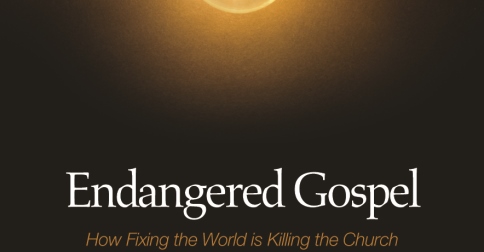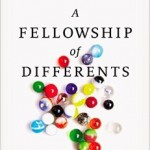 Fasting toward the Common Good
Fasting toward the Common Good
Chris recently wrote an article for The Good Men Project, which begins:
Ash Wednesday marks the beginning of the season of Lent for Christians around the globe. Based on the example of Jesus, who fasted for 40 days in the wilderness, Lent is the season leading up to Easter that has traditionally been understood as a time of fasting. Today, many Christians have reduced the practice of fasting during Lent to giving up some luxury — chocolate, alcohol, coffee, or television — for the duration of the season. Although such sacrifices are fasts of sorts, it is particularly easy to lose sight of the reality that the Christian tradition of fasting isn’t simply about giving things up, but rather about disciplining ourselves in order that we might more fully and more healthfully participate in a larger purpose. The end of fasting during Lent is not our own personal good, but rather the common good, the flourishing of our places and ultimately the world. Jesus was able to endure 40 days of fasting (and some brutal temptations to political, religious, and economic power) because he saw himself as part of a larger mission — one of healing and liberation.
Our modern Western Culture, fueled by individualism and barraged by a ceaseless stream of advertisements, is rapidly consuming its way toward destruction — consuming land, atmosphere, and all manner of natural resources in our ceaseless pursuit of more. A key part of the problem as Wendell Berry and other critics have pointed out is that we have founded our lives on the assumption of limitless growth. “[The] commonly accepted basis of our economy,” Berry says, “is the supposed possibility of limitless growth, limitless want, limitless wealth, limitless natural resources, limitless energy, and limitless debt. The idea of a limitless economy implies and requires a doctrine of general human limitlessness: all are entitled to pursue without limits whatever they conceive as desirable — a license that classifies the most exalted Christian capitalist with the lowliest pornographer.” We live with this limitless mindset in a world that clearly has limited amounts of some of the things we need and desire most, clean air and water; land; oil, for instance. What are we to do?
An essential part of the way forward, away from the calamitous ecological effects of climate change and other unsustainable behaviors is — slowly and voluntarily — to submit ourselves to limits and to seeking something more than what we believe is best for ourselves as individuals.
…
Our friend Ragan Sutterfield also has a wonderful post on Ash Wednesday and Lent.
(You should definitely subscribe to Ragan’s Patheos blog: WORD + FLESH, if you don’t already!!!)
Remember that you are humus
Ash, you should know, is a great source of phosphorus and potassium—two members of the essential soil chemical triad of Nitrogen-Phosphorous-Potassium (N-P-K). We should remember this as we go into Ash Wednesday, a solemn day in which we meditate on our mortality and finitude. In thinking of our death we must also recognize that our mortality is tied to the nutrient cycles of the earth, that our bodies are a source of new life.
As Ashes are imposed in the sign of the cross on our forehead the priest says some variation of “Remember that you are dust and to dust you will return.”
…












